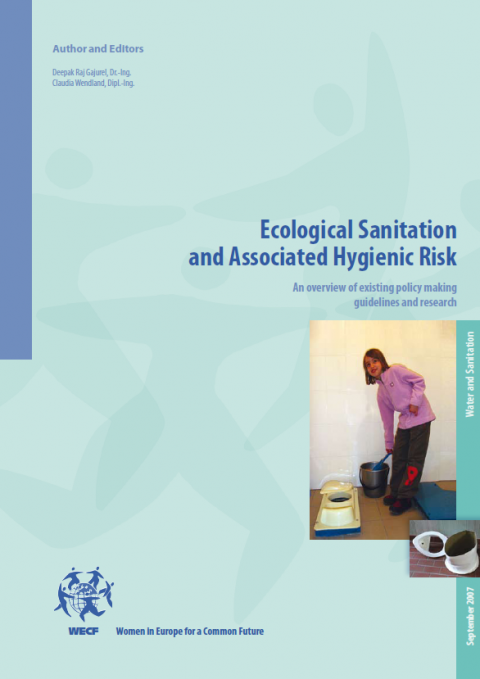Ecological Sanitation and Associated Hygienic Risk - An overview of existing policy making guidelines and research
Gajurel, D. R., Wendland, C. (2007)

Published in: 2007
Publisher:
WECF
Author:
Gajurel, D. R., Wendland, C.
Uploaded by:
SuSanA secretariat
Partner profile:
common upload
4638 Views
32 Downloads
Content - Summary
In household wastewater, urine contains considerably large amount of nutrients derived from agriculture whereas faeces contain most of the pathogens with a potential of causing diseases. Therefore, source control
of faeces from household wastewater prevents these disease-causing pathogens gaining access to water bodies where they survive longer than on land and pose a long-term threat to human health. This paper shows the importance of source-separating toilets and describes the existing policy making guidelines connected to ecological sanitation.
Bibliographic information
Gajurel, D. R., Wendland, C. (2007). Ecological Sanitation and Associated Hygienic Risk - An overview of existing policy making guidelines and research. WECF
Filter tags
English Faeces or faecal sludge Food security and productive sanitation (WG5) Urine Urine diversion dehydration toilets (UDDTs)














